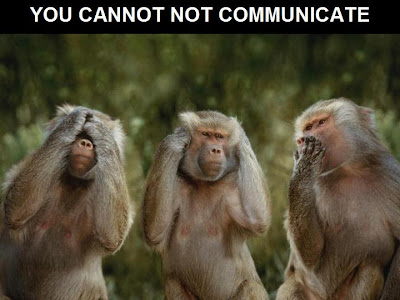
People who enjoy rapport with each other tend to behave like each other in various ways:
- Physiology
o Matching body posture and gestures
- Voice
o Matching voice characteristics like tone, speed, pitch, intonation, accent
- Language
o Matching choice of words used in speech like colloquialism, dialects
- Thinking style
o Similar preference for hearing, seeing, or feeling styles
- Beliefs and values
o Sharing similar concepts of what is considered true and what is important
- Experience
o Shared experiences like home town, school, emotive events like natural disasters, wars
- Breathing
o Similar in depth and speed of breath.
A loving couple enjoying rapport will unconsciously display matching behaviours in most or all these areas.















 People will respond to what they think we mean, which may or may NOT be an accurate interpretation of our intended meaning.
People will respond to what they think we mean, which may or may NOT be an accurate interpretation of our intended meaning. People often assume that they can avoid personal responsibility by simply saying nothing.
People often assume that they can avoid personal responsibility by simply saying nothing.  Resistance is a comment on the communicator and usually a sign of insufficient rapport.
Resistance is a comment on the communicator and usually a sign of insufficient rapport. With better rapport, the other person will listen better, respond better and co-operate more.
With better rapport, the other person will listen better, respond better and co-operate more.


